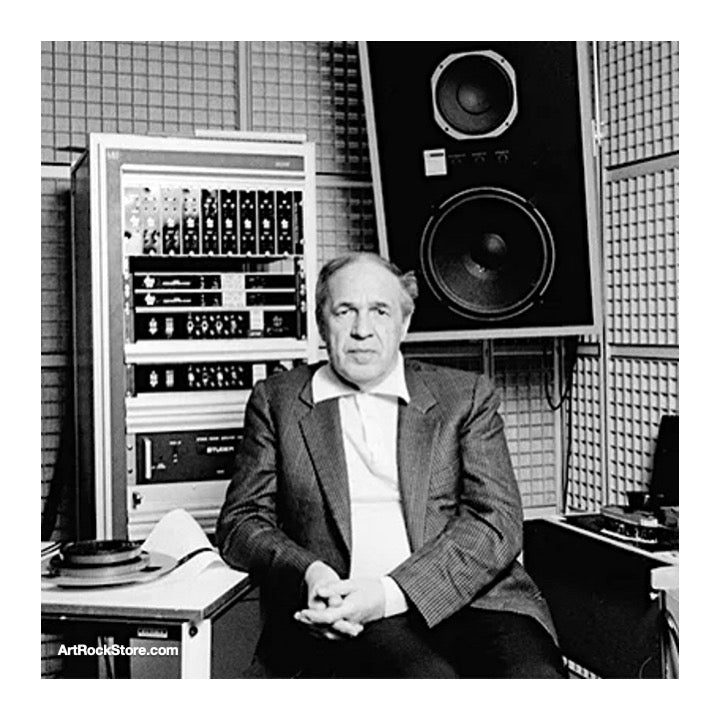
Pierre Boulez | Artist
Pierre Boulez was a French modern-classical composer, conductor and writer born 1925 in Montbrison, France. He was a major figure in 20th-century classical music, renowned as a champion of the avant-garde. Boulez played a pivotal role in reshaping the contemporary music landscape, leaving an indelible mark on the world of avant-garde composition and conducting. Boulez's early musical education began with piano lessons at the age of six, followed by studies in harmony, counterpoint, and composition at the Paris Conservatoire. His formative years were influenced by the works of composers such as Schoenberg and Webern, and he quickly established himself as a leading figure in the avant-garde movement. His early compositions, such as "Le Marteau sans maître" and "Structures I and II," showcased his innovative approach to serialism and set the stage for his career as a composer. In addition to his work as a composer, Boulez was a highly respected conductor, holding positions with some of the world's most prestigious orchestras, including the New York Philharmonic, the BBC Symphony Orchestra, and the Ensemble Intercontemporain, which he founded. His interpretations of the standard classical repertoire, as well as his commitment to contemporary music, earned him a reputation as a fearless and uncompromising conductor. Boulez was also a fervent advocate for musical education and a prolific writer on music theory and aesthetics. His lectures, essays, and interviews offered valuable insights into the complexities of contemporary music, and were instrumental in fostering a deeper understanding of avant-garde techniques and musical innovation. In 1970 Boulez was asked by President Pompidou to return to France and set up an institute specialising in musical research and creation at the Beaubourg district arts complex—now known as the Pompidou Centre—which was planned for Paris. The Institut de Recherche et Coordination Acoustique Musique (IRCAM) opened in 1977. Boulez's model was the Bauhaus, which had been a meeting place for artists and scientists of all disciplines. At the same time he founded the Ensemble Intercontemporain, a virtuoso ensemble dedicated to contemporary music. Throughout his career, Boulez received numerous accolades and honours, including multiple Grammy Awards, the Polar Music Prize, and the Ernst von Siemens Music Prize. In his later years, Boulez remained an active and influential figure in the music world, continuing to compose, conduct, and mentor emerging talents, including musical outsiders such as Frank Zappa. Boulez's recording catalogue extends to over 200 studio and live recordings, including his own compositions and as a conductor. Standout recordings of his own compositions include: Le Marteau sans Maître (1964), Rituel; Eclat/Multiples (1983), le marteau sans maitre; Notations pour piano; Structures pour deux pianos; Live ll (1989), Boulez Conducts Boulez: Explosante-fixe; Notations I-XII; Structures II (1995), Répons; Dialogue de l'ombre double (1998), Boulez Conducts Boulez: Le Marteau sans maître; Dérive 1 & 2 (2005), and the comprehensive set Œuvres complètes [Complete Works] from 2013.
Artist Website: wikipedia/Pierre_Boulez
Featured Albums: Pierre Boulez
Related Artists: Ensemble intercontemporain, Frank Zappa, Olivier Messiaen, Arnold Schoenberg, Anton Webern
